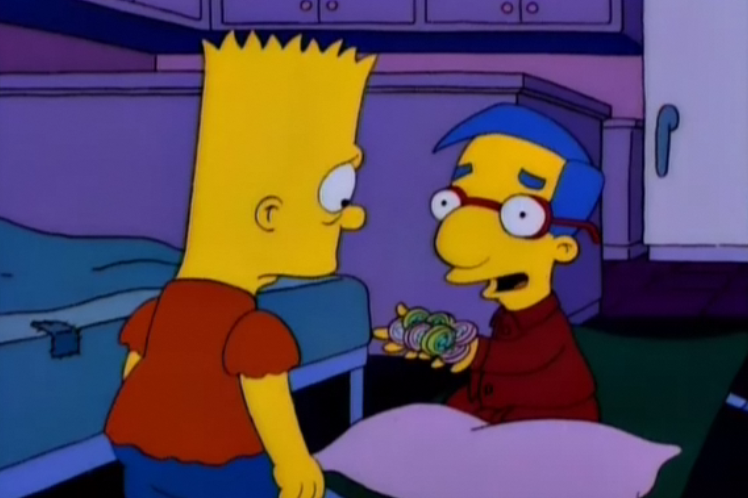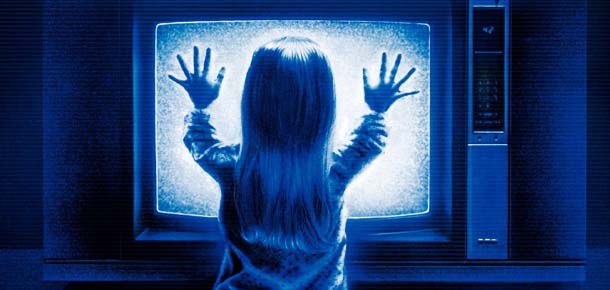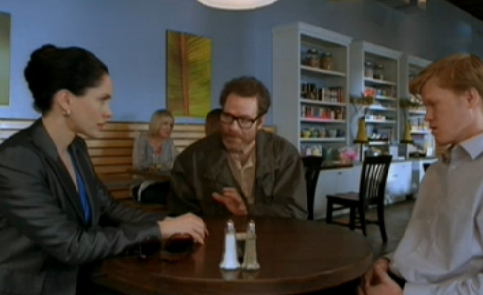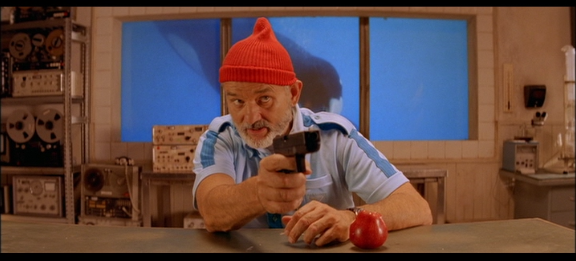
And so, just to continue the tradition of everything I’ve ever promised about Steve Zissou Saturdays being a lie, disregard what I said a few posts ago about the series returning in November. It actually returned in October. I am the master of suspense.
And before we get to the analysis, don’t forget to read this and vote on whatever television show you’d like me to review in its entirety next. Even if you’re reading this like 20 years in the future. I assure you, I’ll still be reviewing crappy TV somewhere.
For any newcomers to this blog who don’t remember this series, the first Saturday of every month will see me working through the entirety of The Life Aquatic With Steve Zissou, examining every scene, in sequence, all the way through the film. So far I’ve covered about a half-hour’s worth. We’ll be at this for a while.
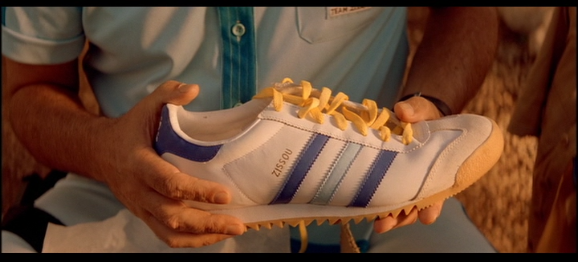
The scene opens on what is most likely Jane’s first full day in the Zissou Compound, and — very interestingly — each scene that we’re going to cover, leading right up through nightfall, consists of one-on-one interactions. While Anderson has a massive cast at his disposal, he’s content to stick them off in the periphery while a small number of individuals get to know each other one at a time.
I find this interesting. In fact, the pattern began the previous night, which we covered last time, with a scene between Steve and Eleanor, followed by one between Ned and Jane. This time we get Steve and Jane, Ned and Klaus, and then Steve and Ned. In each case it’s one of the male Zissous, and it all culminates at nightfall with a dialogue between both of them.
It’s structured enough to be pretty clearly deliberate, and I love the way Steve and Ned are introduced but then spend so long orbiting around each other, and I especially love the fact that it barely registers. It doesn’t feel like Steve and Ned go an entire day without interacting directly, but there you go. And when we finally do get to their discussion, it becomes clear why Steve might not want to approach Ned head-on, and why he’d prefer instead to keep him as a comforting presence nearby rather than any kind of direct equal.
We open with a short, comic moment that sees Steve unpacking a box of Zissou-branded sneakers. While it’s not explicitly mentioned, the tell-tale three-stripe design gives the company away as Adidas.
Once we see these shoes in close up it’s impossible not to notice that everyone on Team Zissou wears them. As we see, Steve’s in possession of large numbers of unsold product. Adidas terminated his sponsorship, and Steve — always quick to surround himself with reminders of better days — probably bought up a good deal of the remaining stock. They’re now in storage somewhere in the compound, keeping Team Zissou in comfortable — but diminishing — footwear. They’re available…but once again for a limited time only.
It’s also impossible not to notice that Ned* gladly replaces his black dress shoes with a pair of these sneakers, just as he will eventually replace his Air Kentucky garb with a Team Zissou speed suit. Piece by piece, he’s becoming a Zissou…which begins here as he literally puts himself in his father’s shoes, and is then made very evident by the scene coming up in which he receives his correspondence stock.
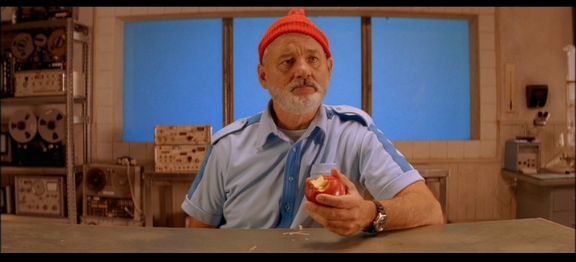
Jane’s presence — and the presence of her tape recorder — at this unboxing suggests it was part of the interview that spurred Jane’s visit to Pescespada Island in the first place, and our next scene confirms it: Steve and Jane are in a lab, where the interview becomes much more formalized.
Formalized, and stylized. Anderson here uses an interesting visual effect** that warps the image outward from its subject. Whether that’s a visual manifestation of Steve’s off-putting nature or simply a directorial flourish to add some visual flair to an otherwise static scene, I’m not sure, but it’s the same for the shots of Jane we get here as well.
It’s here that we learn how willfully detached from reality Steve Zissou really is. With his last film a failure (by no means his first), his finances a mess and his equipment in shambles, he still expects that Jane is assembling a “puff piece.” A softball, celebratory, promotional article for Grand Adventurer Steve Zissou. This is why he showed off so cartoonishly with his sneakers and bit swaggeringly into that apple. The moment Jane asks her first real question, his confidence falls, and so does his willingness to proceed.
She asks him what he thinks went wrong. To us in the audience, and to Jane, this is a totally fair question. After all, this is probably something we’d like to hear at this point in the film. We’ve heard about his success, and we’ve seen evidence of his success, but what we see now, here, today, is totally different.
We like Steve. Jane may not. But either way, we all want to know what happened.
Steve, however, bristles at the mere suggestion that anything has changed. He’s willfully convinced that it hasn’t, and also that Jane is out of line to mention any such thing.
The interview continues, but Steve’s defeated, as evidenced by his setting down the apple, never to be finished.
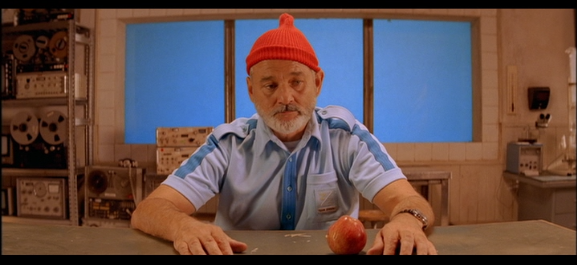
This actually — though I’m sure not deliberately — reminds me of one of my favorite small moments in The Royal Tenenbaums, when Murray’s character finds out that Margot isn’t coming home. He raises a cookie to his mouth, holds it there…and then just sets it down.
There’s something inherently fatalistic about watching somebody decide not to eat.
Steve suggests that they start out with some “stock dialogue,” and even provides a few questions and answers for her. “Favorite color, blue. Favorite food, sardines.”
It’s all part of Steve’s desire to inhabit an image. An image — like the famous photograph of him pointing into the distance — endures. Man, eventually, fails. Steve doesn’t want to be a man. He doesn’t want to grow, and learn, and least of all does he want to change. He just wants to be his own image…and the last thing he wants to hear is that he’s further tarnishing his own legend every day that he’s alive. Somebody in a healthier state of mind might take that as a wake-up call and make an effort to live up to his own name again. Steve, on the other hand, just wishes to retreat, to hide behind cliche, and to bar the door against intrusion.
As we’ve discussed before, both Steve and Jane seek to structure the world in ways that make them comfortable. For Steve it’s shielding himself behind the image he’s constructed, and for Jane it’s breaking complicated situations down into a rigid set of questions and answers. Last night Ned punctured Jane’s structure, and today Jane is puncturing Steve’s.
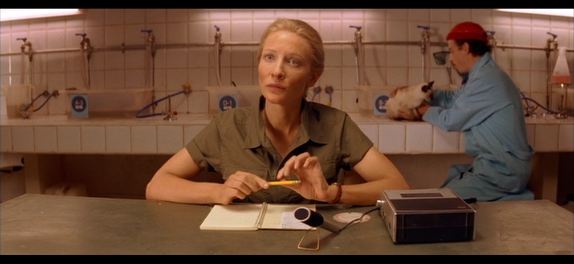
When she asks instead about what Steve thinks of his most recent film, our hero realizes there’s no hope for the interview. He turns the question back on her, and she responds that she felt that aspects of it seemed slightly fake.
Steve asks Wolodarsky to leave, and he does…taking the cat with him. Wolodarsky tells Steve to take five, but he mutters it as he’s already leaving. He knows — correctly — that Steve won’t listen. He’s been through this before. He knows it’s a losing battle.
It’s here that two very, very interesting things happen. The most memorable, perhaps, is captured in the screen grab that opens this article: Steve Zissou, who can’t fathom why anyone might feel that he isn’t the great man he once was, points a loaded handgun at a pregnant woman.
I’m not sure there’s anything I could add to what should already be coming to mind when you think about it yourself.
The other thing is that Anderson is directly calling attention to artificiality. The sea creatures that we see throughout the film are not designed with any eye toward looking realistic, and Steve himself seems to inhabit a fantasy land in which the crumbling empire that we see is a healthy and thriving one when he looks at it.
But beyond that, Anderson asks us a few times throughout the course of the film to consider reality…and, each time, he undercuts it himself. Steve’s “Does this seem fake?” speech takes place while an orca does tricks in the background. The framing of the scene keeps the killer whale fixed right in the center, where we can’t miss it, performing for us. While Steve is posing the very question of whether or not this seems fake, the movie itself positively wants us to scream “Yes! It does!”
Later in the film Steve and Ned discuss the reality of their situation while they walk through the obviously fake Belafonte set. When these characters want to convince us that they’re real, they unintentionally betray the fact that they’re not. It’s all just an image they’re trying to inhabit.
Steve also, as we’ve mentioned before, asks if it looked fake when his friend was bitten in half in front of him. Of course, Jane couldn’t possibly know…there was no footage of that moment; Steve dropped the camera. I’m not sure what to make of this. It could just be Steve getting wrapped up on his question without thinking too hard about what he’s asking, it could be Steve confusing reality (in which he did see that happen) with the film (in which nobody could see it) which in turn speaks to the greater difficulties Steve has with this throughout The Life Aquatic, or it could just be Steve playing an aggressive sympathy card, whether or not it makes logical sense.
Any other thoughts? I, for whatever reason, find this to be one of the more interesting questions in the entire film.
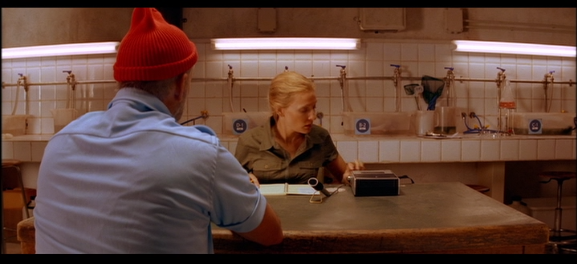
Steve pulling out his gun frazzles Jane enough that she actually uses profanity, and then hits Steve with another belt of reality: the article was her idea. Nobody else at Oceanographic Explorer cared enough about him to want to cover it.
He correctly guesses, however, that she’s “taking something out” on him, and once again her Q&A structure fails her. She switches off her tape recorder…but then says nothing. She’s afraid that it might catch something beyond words, and she knows that it’s something she won’t want to face later. So she switches the recording device off…exactly what Steve — who loves recording devices because they allow him to re-shape what they’ve captured to better suit his expectations — chided Klaus for doing in the last installment.
We’ll get a sense of what, exactly, is eating Jane later on, but for now it’s worth reflecting on something we didn’t cover last time around: Steve may be an obvious father figure for Ned, but something that’s not as immediately obvious is that Jane serves as his mother figure. Things get muddy a bit — or outright weird — when you consider that their courtship is not entirely chaste, but it’s important to keep in mind anyway. Ned’s lost a mother, and Jane’s about to give birth. He needs a mother, and she’s about to have a son.
As the movie progresses we’ll discuss this more, I’m sure, but it’s probably good to think ahead a bit to the end of the film, when Jane’s newborn is seen wearing Ned’s cap. It’s important because Steve doesn’t just captain a crew of misfits…he reigns as Papa Steve to an eminently fucked up family.
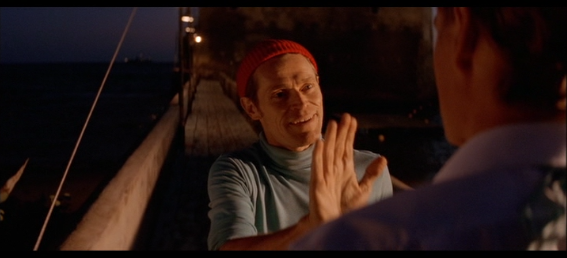
This is emphasized in the next scene, which segues from Jane’s sarcastic “I’m sure you’ll make a terrific father,” into a scene of his two sons bickering.
Of course, they’re not quite sons. Ned “probably” is, and Klaus just looks up to Steve (and formerly Esteban) as a father. But it’s clear what Klaus feels is happening here; the prodigal son has returned, and Klaus’s role as the favorite (whether or not he actually is) is at stake.
Something similar happened in Fantastic Mr. Fox, and father-envy is by no means a rare thing in Anderson’s work. Here it’s particularly interesting, because Ned may well actually be Steve’s progeny, and there’s no chance Klaus is. Yet Klaus was here from the beginning. He’s seen Steve through his worst times, and he’s stood beside him in his darkest hours. Ned — whether or not he contains any actual Zissou blood — is the interloper here; not Klaus. Klaus has earned his rightful place…Ned just wandered in.
It has to be doubly painful for Klaus — which gives his otherwise comic character a strong through-line of tragedy — because on their last voyage he lost one of his father figures, and on this one, he already suspects, he’s losing the other. Klaus goes from having two fathers to having none. Ned is just another Jaguar Shark.
Even Klaus’ disparaging nickname for Ned (“Sonny”) is as heartbreakingly telling as it is rude.
There’s another minor detail here that I’ve never noticed before doing this series; during this conversation, Ned is holding two garbage bags. Earlier in the day, we saw him sweeping up behind Jane and Steve while they dug out the Zissou sneakers. This suggests that Ned has been cleaning up all day. That’s what Steve does with the son he’s never seen before; he has him clean up the compound! He doesn’t spend quality time with him, and he barely gives him a tour. Instead he gets a broom and some empty trash bags.
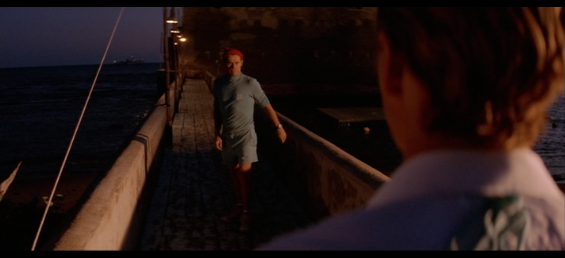
Klaus chastises the newcomer with a slap, and a reminder that “It’s the Steve Zissou Show. Not the Ned Show.”
Ned threatens him, but no further action is taken. At least, not yet. Ned isn’t yet at the point that he’ll pay physical interference back in kind, but he will be. The first seed of it is planted here.
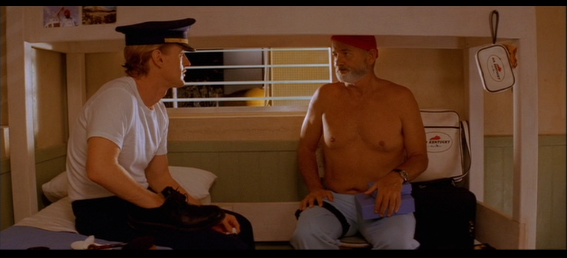
After a long day of cleaning Steve’s things, Ned returns to his room to clean his own things. And after a long day of not-bonding with his son, Steve enters the room and immediately tells Ned that they need to watch themselves around “this Jane character.”
None of this is about their relationship, which — one might think — should be at the forefront of both men’s minds. Instead, as usual, it’s about Steve, and his perceived sleights. In Steve’s mind, his problems are everybody’s problems.
Additionally, Steve is proactively explaining away Jane’s lack of sexual interest in him by referring to her as a bull-dyke. When Ned questions this due to her pregnancy, Steve replies with a masterfully cruel — and totally unfounded — dismissal: “Bull-dykes can get pregnant.”
Steve manages to be both correct, and a massive dick.
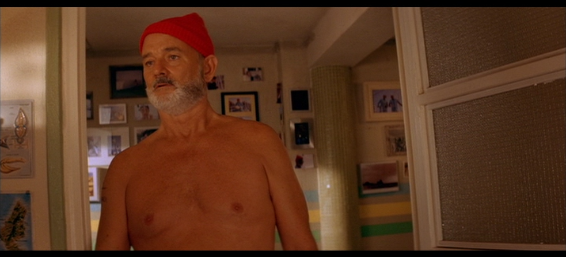
Our hero gets up to leave without any words of comfort, support or acknowledgement for his son, but Ned calls him back. He asks how long Steve has known about him, and Steve says that he’s known for about five years, and that he read it in an article about himself.***
Like Steve dropping the camera, this is later contradicted. However, in this case, we know which statement is false: it’s this one. Steve’s always known about Ned. We even find out why Steve never attempted to contact Ned: it’s because he hates fathers, and he never wanted to be one.
What a massively encompassing statement “I hate fathers” is. It seems to scream so loudly for closer examination…for a followup question. For a Jane Winslett-Richardson style “So what happened?”
But we know how that goes.
Once again, we see where we are. We are given a tantalizing suggestion of a past. But we are not allowed to go further. We’ve seen what happens when we try. Steve will be evasive. He will be condescending. And if that fails, he will pull a gun and then describe that as only trying to defend himself.
The past is under tight guard. Whatever Steve went through with his father, it’s enough to put him off fathers for good. Deep Search is the name of Steve’s sub, but he won’t allow it to be ours.
Steve’s departure thus leaves behind some pretty dark clouds, but he returns with good news: Ned’s correspondence stock has arrived:
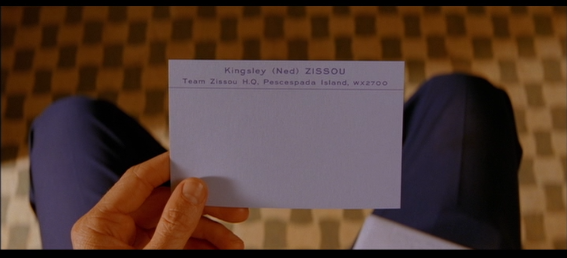
Step by step, Ned’s becoming a Zissou…and Steve is asserting the same control over him that he attempts to assert over everybody else. Jane resists…but Steve knows that Ned will not. It’s part of why he likes him. In spite of everything and anything, Steve figures, Ned will continue to look up to him.
Once again, Ned is too gentle to return a slap in the face.
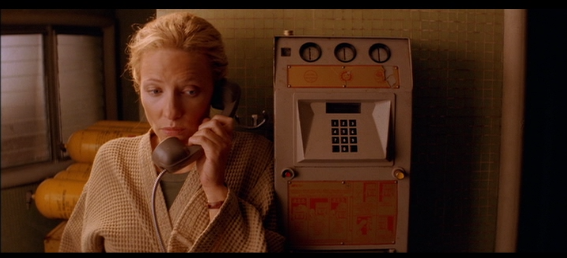
Pele plays “Lady Stardust” to score a short scene of Jane on the phone, mirroring the one with Ned last night. Like Ned, she is attempting to sort out some business at home. In the absence of another party, however, she’s lost. While leaving a message she can’t rely on her standard questions and answers…and she flails, vacillating between depression, hopefulness, playfulness, and meandering sentences she can’t resolve.
She ends the phone call with a dark, oblique reference to abortion which, coming on the heels of Steve’s recent comments to Ned sounds even worse than it might otherwise. Lots of absent fathers…lots of lost sons. And we still haven’t left shore.
Next: Steve’s going to fight it, but he’ll let it live.
—–
* Jane, by contrast, retains her black Chuck Taylors, and does not wear the Zissou sneakers. I’m not sure if this suggests that Steve never offered her a pair, or that he did offer her a pair and she refused. Either, I think, is a fair reading, and it leads to some great mirror imagery later on: looking down from the hot air balloon, we see Steve’s feet and Jane’s feet, in their separate, particular footwear. It’s no coincidence that this scene involves some verbal conflict between them. Then, later, we look down from the chopper to see Steve’s feet and Ned’s feet…wearing the exact same sneakers, after a moment of father-son bonding.
** I know the type of lens that causes this effect has a name. Someone smarter than me, please pipe up in the comments.
*** “It was in the paper. I assume they check their facts.” I just wanted to quote that. Because it’s such a perfect, distant, unconvincing, fragile line that could only work this well in a Wes Anderson film. I positively adore that moment, and the only reason I didn’t mention it above is that…well…what could I possibly say that wouldn’t detract from it?
